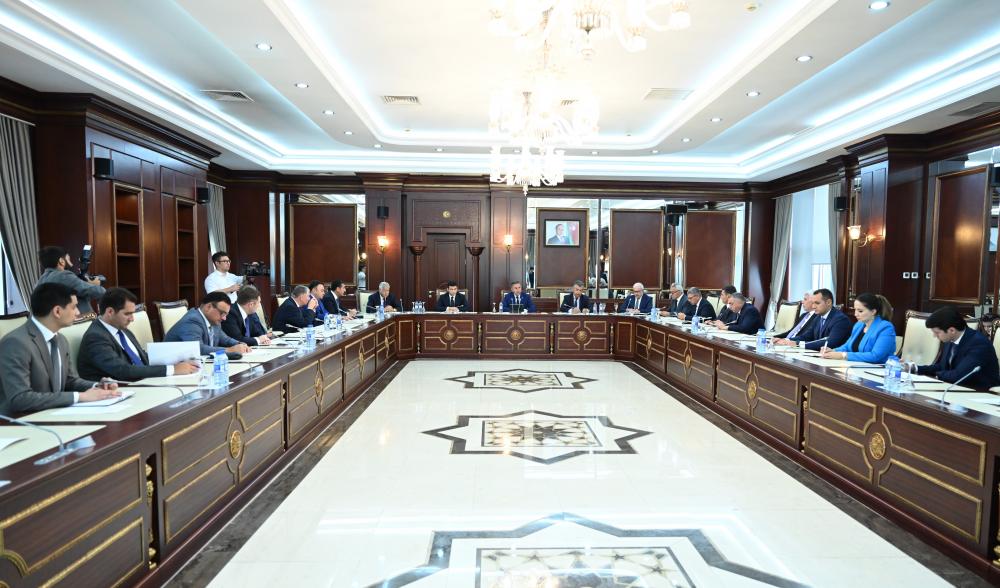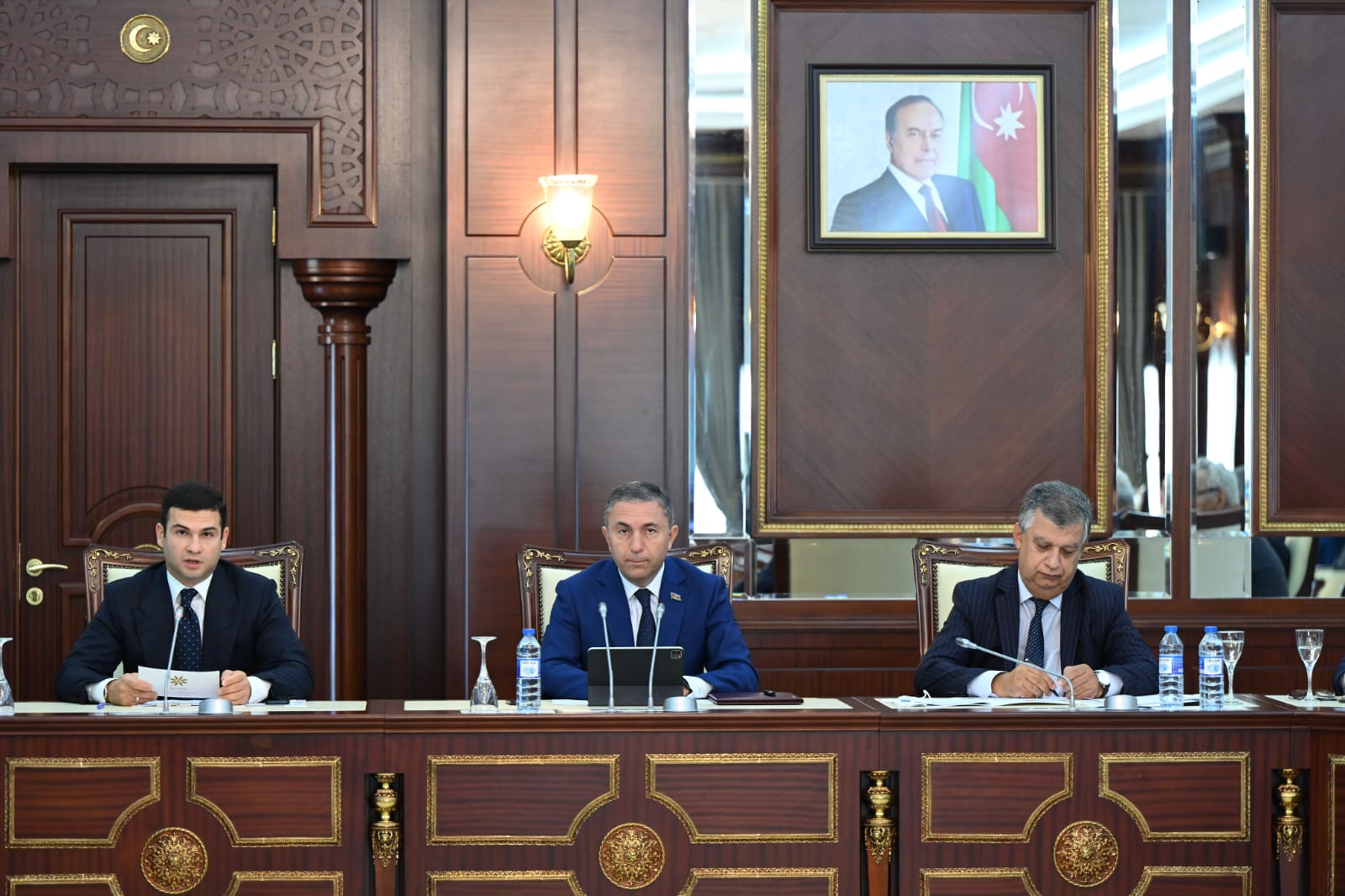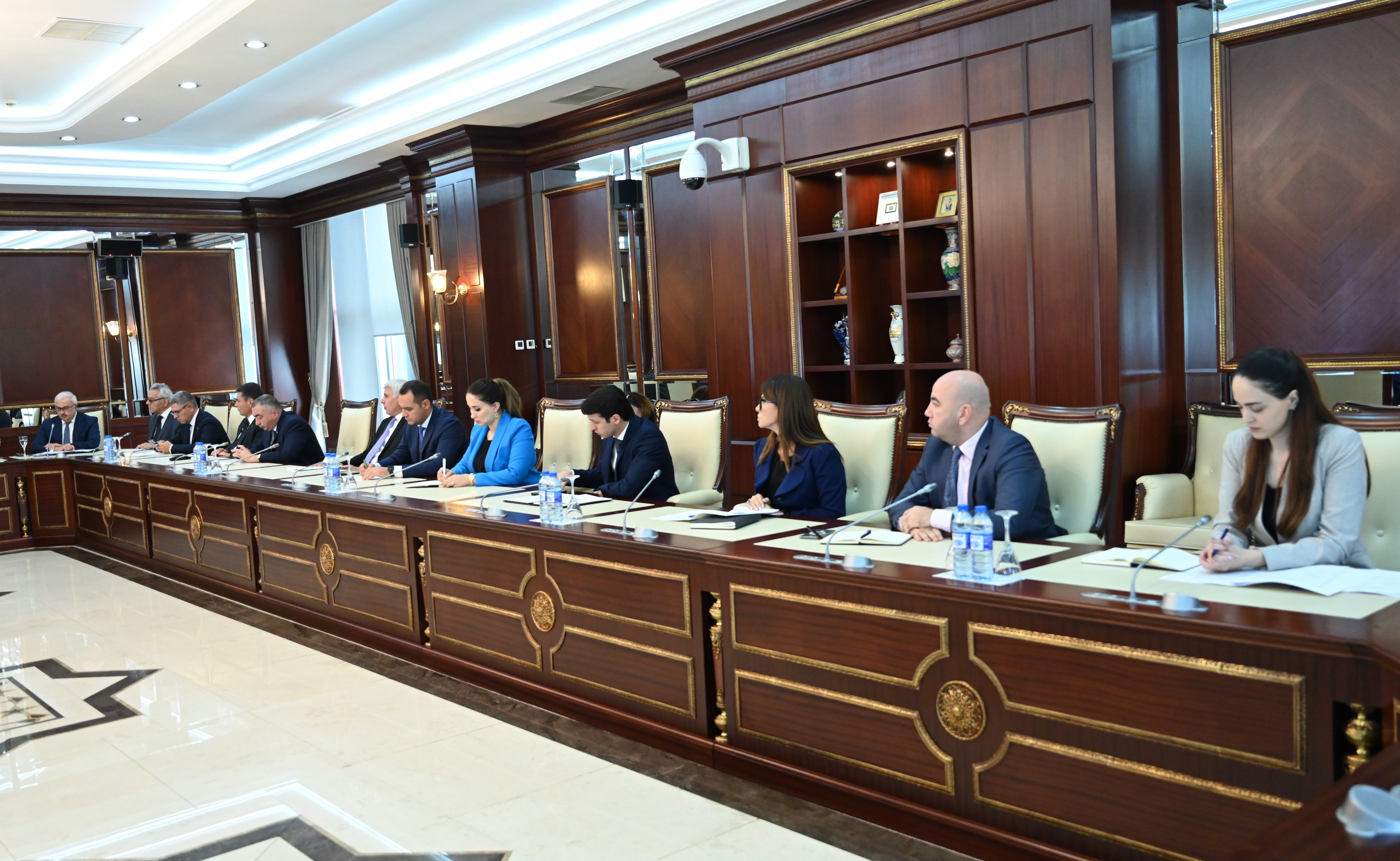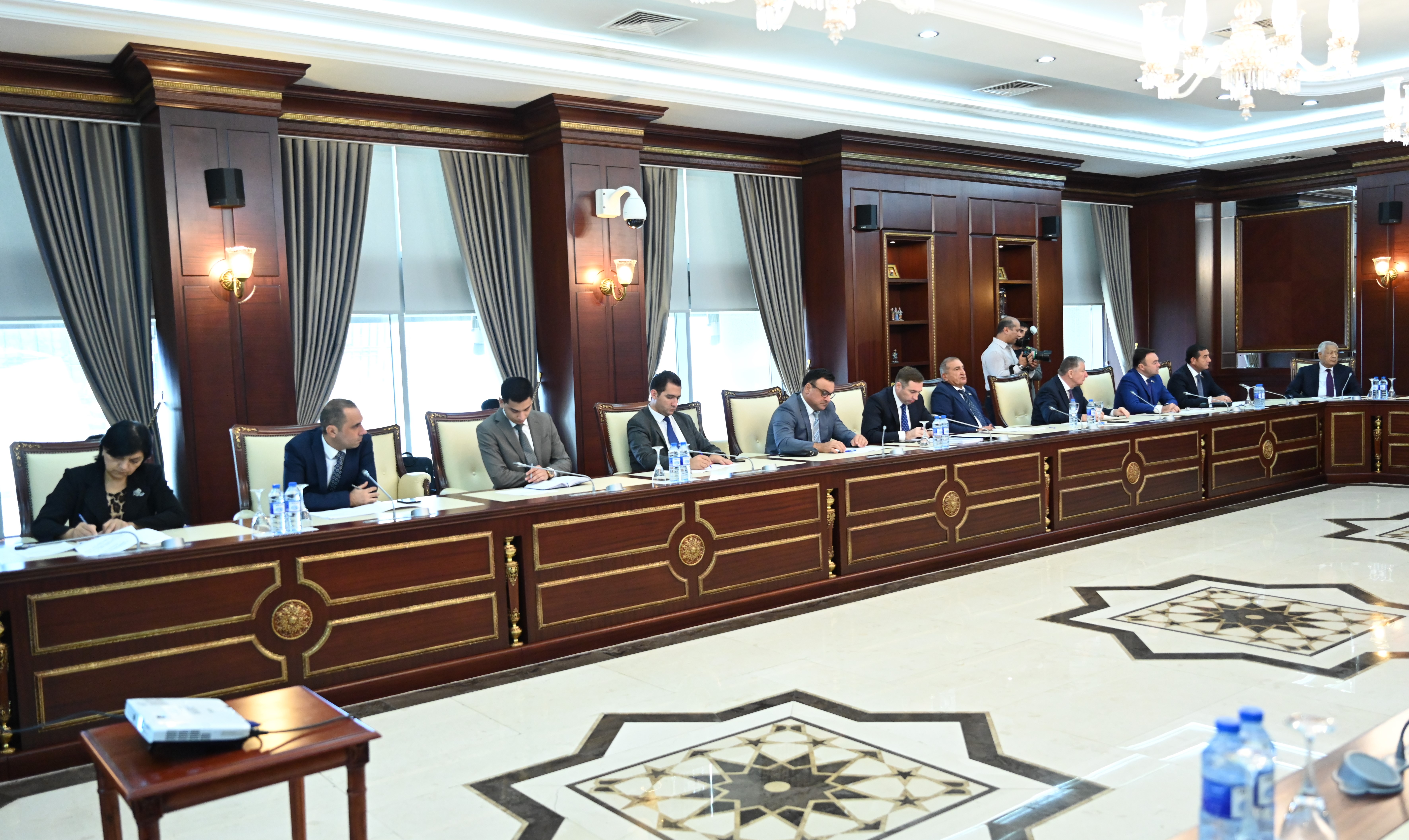Economic Policy, Industries and Enterprising Committee in a Meeting

The head of the parliamentary Economic Policy, Industries and Enterprising Committee Tahir Mirkishili announced at the first meeting of the committee in the 2022 autumn session of the Milli Majlis, held on 29 September, that the agenda consisted of three items.
Mr Mirkishili said as the Micro-, Small and Medium Enterprises’ Development Bill was discussed, that promotion of business enterprising was one of the vectors of the Head of State’s economic strategy. The committee chairman emphasised the position of the MSMEs in the overall business development process and underlined the importance of the work done on them. Both the State and the SME Development Agency (KOBIA) had been taking necessary steps in the past period, Mr Mirkishili said; the businesses had been given soft loans and subsidies; the opening of new jobs had been fostered. Then, Mr Mirkishili gravitated upon the SME goals formulated in the 2022-2026 Socio-Economic Development Strategy of Azerbaijan and spoke of the substantial roles of both the KOBIA and the new law submitted to the Milli Majlis by way of a legislative initiative in achieving those goals. Besides, this document matters when it comes to the regulation and expansion of the area it will encompass, according to the committee head.
Deputy Minister for Economy Niyazi Safarov who was present at the meeting said our country had maintained stable and continuous development, averted negative economic and financial influences and had the positive economic and social dynamics despite the world crisis. Besides, Azerbaijan has been pursuing a new strategic course for some time in response to the current challenges. An extensive kind of work is under way, intended to let us achieve a more powerful, diversified and dynamic economy. The SMEs, then, who play a special part in economic growth, could contribute to the continuation of this progress across the board, in the opinion of Mr Safarov.
Chairman of the KOBIA Board Orkhan Mammadov said, in turn, how essential it was to tap the opportunities provided by the SME given their existing potential. Mr Mammadov went further to talk about the significance of the Bill in question and said that businesspeople would be applying the future law in their operations as necessary. Then, he told the meeting participants of the SME supporting mechanisms. The 2022-2026 National Socio-Economic Development Strategy envisaged projects earmarked for implementation to increase the SMEs’ share in the economy of the country. Consequently, the intended expansion of the scope of the SMEs employing the existing supportive mechanisms as well as the introduction of new and more efficient targeted support systems will accelerate the progress of the business environment in Azerbaijan.
Mr Mammadov also touched upon the process of the Bill’s composition, saying that the relevant international experience had been studied, public hearings had been held and experts’ conclusions had been taken into account. The document introducing the legal regulation to meet modern requirements will prod the socio-economic development of our country, in the opinion of the KOBIA Board Chairman.
First Deputy Chairman of the Board of the Agency Natig Hasanov tabled in the first reading the MSME Development Bill consisting of 5 chapters and 15 articles and intended to regulate the relations in the said field as well as to determine the forms and methods of stimulating the state backing given to MSME operations.
Furthermore, the Bill formulates the main concepts used in the legislation concerning the MSME promotion; it also specifies the goals, principles and main areas of the corresponding state policy. There are, besides, the conditions on which businesses are to be supported, the procedure for providing such support and the fashion after which the eventual results will be assessed. The document contains the articles about the state financial, consultative and information support, supporting innovative operators/production of goods and provision of services, and other matters.
The Bill contemplates institution of a permanent MSME development co-ordination group under the auspices of the authorised specialist entity. The group is to be formed by the appropriate executive authority. Also, the authorised body will compile a centralised register to accumulate information about all the MSME operations in the country. The register-keeping procedure and the mandatory data list are to be determined subject to the Regulations of the United MSME Subjects’ Register.
The overview given at the committee meeting also offered information about the enactment’s deliverables, the enforcement mechanisms and the suggested harmonising work.
Comments were made by the deputy committee chairman Ali Masimli and the committee members Vahid Ahmadov, Ziyad Samadzade, Vugar Bayramov, Rufat Guliyev, Mahir Abbaszade and Mashhur Mammadov who also offered the proposals of their own in this regard. They pointed out that the Bill was going to promote national economic growth; they talked about the KOBIA’s role in promoting business enterprising, too.
Further comments came from Chairman of the Public Council under the auspices of the KOBIA Farhad Garashov and Chair of the Board of the Association of SME Subjects and Clubs (KOBSKA) Nigyar Alasgarova. Both Mr Garashov and Mrs Alasgarova praised the business environment created in the country and the steps taken in support of business enterprises.
It was recommended then that the MSME Development Bill should be tabled in the first reading at a Milli Majlis plenum.
Next, Tahir Mirkishili presented the first-reading amendments to the Business Enterprising Law. He told the assembly that the wording ‘the Law of the Republic of Azerbaijan’ would be replaced with the wording ‘…and the Laws of the Republic of Azerbaijan regarding promotion of the development of micro-, small and medium business enterprising’ in Part I of Article 2 of the law.
Further, Mr Mirkishili familiarised the meeting participants with the first-reading amendments to the Law ‘On the State Register of Real Estate’ whereby the law’s Article 6 is to be titled ‘Payments’ and a new Article 6.4 should be incorporated in it. It follows from those amendments that the fees payable for primary and repeated technical inventories of real estate, verification of real estate information c/w its submission to the State Register (when property changes ownership), release of possessor (proprietor) information from the State Register, description of and definition of the address of a real estate unit, drafting schematic address charts, mobile collection and issue of documents (for the state registration of ownership rights) as well as the fees chargeable for the services related to expert opinions regarding land plots (based on the relevant data obtained from the land cadastre and field measurements) shall be due in the amounts to be determined by the appropriate executive authority.
The Committee recommended that this Bill, too, should be brought up for consideration at a plenum of the Milli Majlis.
The Press and Public Relations Department
The Milli Majlis






